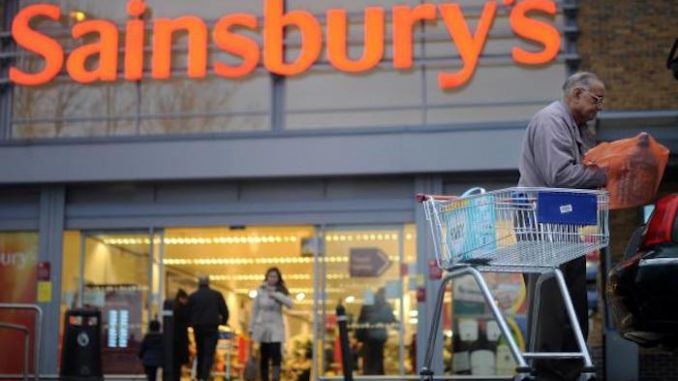
British supermarket chain Sainsbury’s has banned the term ‘Easter eggs’ so as not to cause offence within the Islamic community.
The pro-EU supermarket giant has instructed stores across the UK to swap the term ‘Easter eggs’ for ‘Chocolate eggs’ instead.
Breitbart.com reports: “In our local @sainsburys not a single Easter Egg [has] the word Easter on,” complained one Twitter user. “Just won’t buy them.”

BYPASS THE CENSORS
Sign up to get unfiltered news delivered straight to your inbox.
You can unsubscribe any time. By subscribing you agree to our Terms of Use
A member of the supermarket’s social media team shot back, asserting that Sainsbury’s feels the term “Chocolate eggs” better describes “such products”, along with “their ingredients and contents”.
https://twitter.com/JackBMontgomery/status/978256613940350976
The statement triggered a public backlash, who felt the supermarket was commercialising a traditional holiday and erasing its Christian roots unacceptably.
“So why do you only sell them at Easter?” demanded one. “Surely a secular egg is for life not just blatant commercial exploitation.”
“Me and my family have all decided to switch to Morrisons for our EASTER EGGS this year,” commented another. “Achieves nothing, but we feel good about it,” they added sadly.
“What the hell is the matter with us?” despaired a third. “They’re Easter Eggs. That’s it. Not chocolate eggs. Easter eggs. What was the rationale that drove this decision to change their name?”
Sainsbury’s eventually deleted the offending tweet — but have since posted several more saying the same thing.
Curiously, they do describe their ‘Chocolate eggs’ as ‘Easter eggs’ on their website, and claim other items in their product line do use the word ‘Easter’.

The move follows a similar controversy at Christmas, when rival supermarket Tesco ran a Christmas advertising campaign branded ‘#EveryonesWelcome’ which featured a gay couple with a child, men in Sikh dress pulling Christmas crackers, and even a family of pious hijab-wearing Muslims who practiced child veiling — but no visibly Christian characters or symbols.
Discount retailer Lidl, too, was subject to Europe-wide protests after customers realised it was airbrushing pictures of the pictures of Santorini’s iconic churches used to decorate their range of Greek products, in order to remove their crosses.
“We are a company that respects diversity and this is what explains the design of this packaging,” the company claimed at the time — although it later submitted to public pressure and said it would change the packaging.

